| |

|
| |
|
|
| |
|

|
| |
|
| |
|
Revolutionary Realpolitik
#Rosa150
Even 150 years after her birthday on March 5, 1871, Rosa Luxemburg's political impulses are still highly relevant and live on in today's struggles. Many socialists, as well as socialist feminists, are now united in their claim to pursue what she coined as revolutionary realpolitik. Instead of continuing to play reform and revolution against each other, they are interested in "transforming the idea of socialism as the ultimate aim into daily politics' divisional coins and to elevate the everyday political detail work to the big idea's executive tool" (Luxemburg 1903, 373).
Revolutionary Realpolitik implies that every struggle should also create the conditions for struggles to reach further, for an ever deeper transformation. For Rosa Luxemburg this includes fighting in parliament for concrete improvements for broad sections of the population, but always in the service of a learning process for the popular classes. At the same time, it was necessary to clearly show that parliament itself is part of capitalist rule and that the necessary upheaval can therefore not be decided in it. For Luxemburg, parliamentarism was therefore only one means alongside others, such as media work or the general strike, which had to be linked in order to get the people to take the wheel themselves: “The popular masses continue to be the living matter of world history, even in a social democracy, and only when there is lively circulation of blood between the organizational nucleus and the popular masses, only when the same heartbeat animates both, can social democracy prove capable of great historical deeds” (Luxemburg 1913, 252).
Against this background, different practical approaches by feminists around the world take on special significance, often under the heading of a "feminization of politics" (or similar terms such as a "feministation" or "de-patriarchalization"). These are often driven by women and feminists, especially Black women and women of color, who not only want to take over institutions, but, at the same time, change the rules of the game and question the central position they hold in our understanding of politics. Thus, initiatives, from placing feminists in municipal governments to feminist participation in constituent assemblies to the feminist strike, embody this revolutionary realpolitik by inserting feminist values and ways of doing politics into different arenas and creating new tools with which the movement can grow and deepen.
|
|
| |
|
|
|
| |
|
| |
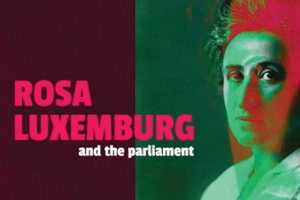 |
|
Rosa Luxemburg & the parliament
Parliamentarians and activists from Brazil, Chile, and Germany reflect on the significance of Rosa Luxemburg’s legacy for their current practice.
Read more
|
|
| |
 |
| |
| |
Feminise Politics Now!
L. Roth, I. Zugasti & A. de Diego Baciero
RLS Brussels Office
The new municipalist movement is inventing ways of democratizing and feminizing politics across the world. This toolkit shares those methods. Here, activists from the movement joined forces to share and discuss the experiences of six cities, reflecting on the obstacles, challenges, contradictions and limitations they faced and, crucially, on ways of overcoming them.
Read more
|
|
| |
|
|
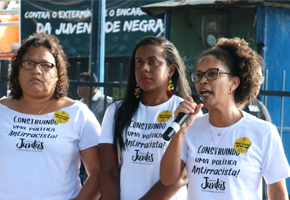 |
| |
| |
Collective Mandates in Brazil
Isabela Dias, Yes! Magazine
Netpick
Brazilian women are breaking into politics by joining together in collective candidacies, which allow politicians to build stronger coalitions and push for progressive change. These collective mandates allow women, and other marginalized groups, to collectively hold office, introducing a more democratic form of decision-making and push feminist issues to the forefront.
Read more
|
|
| |
|
| |
|
Jump over all the Turnstiles
C. Korol, K. Nohales & A. Carrillo, JacobinLat
Members of the March 8 Feminist Coordinator (CF8M) in Chile discuss the precedents and trajectories of the country’s 2019 revolt.
Read more
|
|
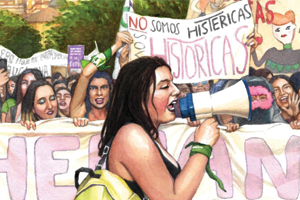 |
| |
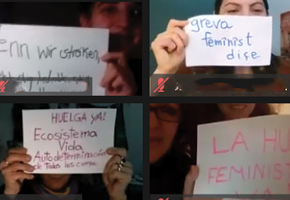 |
| |
| |
Expanding feminist power
Feministas Transfronterizas
Feministas Transfronterizas is a space bringing together feminist, transfeminist, and anti-patriarchal collectives, grassroots organizations, and social movements from around the world to share tactics, strategies, and debates. Coordination centers around the International Feminist Strike process as a mechanism for creating transnational relations and intervening in politics on multiple levels.
Read more
|
|
| |
|
|
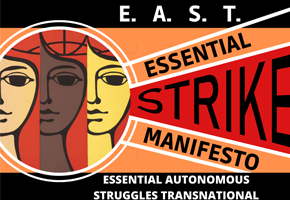 |
| |
| |
March 8 Essential Strike
Essential Autonomous Struggles Transnational
E.A.S.T. (Essential Autonomous Struggles Transnational) is a network composed mostly of women, migrants, workers, and activists born out of the struggles on social reproduction triggered by the pandemic crisis of Covid-19. They call for a March 8 strike to make all essential labor visible and to use the strike’s force to make our demands heard for the post-pandemic reconstruction.
Read more
|
|
| |
|
| |
|
| |
Events |
| |
|
| |
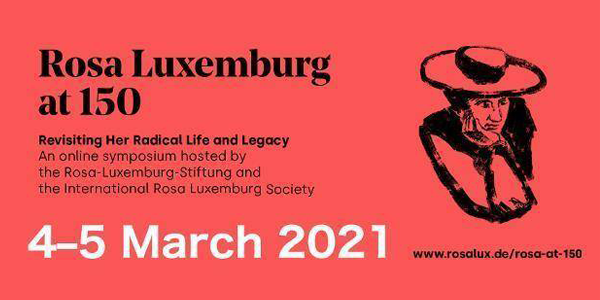
|
| |
Rosa Luxemburg at 150 |
 |
|
| |
|
| |
|
| |
|
04
-
05
|
|
Livestream,
04.03. - 05.03.2021
|
| |
Rosa Luxemburg at 150 |
| |
Revisiting Her Radical Life and Legacy |
| |
An online symposium hosted by the Rosa-Luxemburg-Stiftung and the International Rosa Luxemburg Society in commemoration of the 150th anniversary of her birth.
|
|
|
| |
|
|
| |
|
| |
|
| |
Media |
| |
|
| |
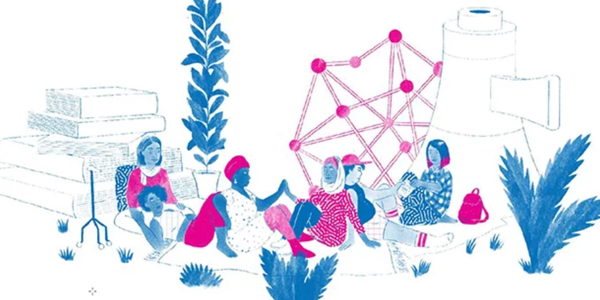 |
| |
|
| |
|
| |
|
Diversity on Common Ground
Ten different women from different contexts tell us what feminism means to them, why they call themselves feminist (or why not) and what their specific struggles are.
|
|
| |
|
| |
|
| |
|
 |
|
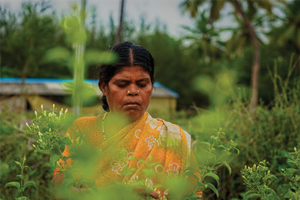 |
|
Women Protesters in India’s Farmer Movement
Netpick
Women have played a central role in India’s current massive farmers’ protest, asserting their right to public space and to be full citizens in the country.
|
|
| |
|
| |
|
| |
|
 |
|
 |
|
The Women Leading Myanmar’s Protests
Netpick
Learn about some of the women leading the protests in Myanmar against the military coup and in demand of a return to democracy, despite the brutal repression.
|
|
| |
|
| |
|
| |
|
 |
|
 |
|
COVID-19’s Impact on Domestic Violence in Vietnam
RLS Hanoi Office
A series of studies investigates the pandemic’s effect on violence against women in Vietnam and reveal the severe conditions that women are currently facing.
|
|
| |
|
| |
|
| |
|
Image credits:
Header image: Bildarchiv Karl Dietz Verlag Berlin
Collective Mandates in Brazil: Jô Cavalcanti
Jump over all the Turnstiles (Chile): Bree Busk, IG: @breeatlast
Feministas Transfronterizas: Alex Wischnewski
Essential struggles: E.A.S.T.
Diversity on common ground: www.patupatu.com
Farmer Protests in India: Nithi Anand, via flickr, CC BY 2.0
https://www.flickr.com/photos/nithiclicks/49962921952/
Women Leading Myanmar's Protest: Surian Soosay, via flickr, CC BY 2.0
https://www.flickr.com/photos/ssoosay/5171176527/in/album-72157705232479411/
Domestic Violence in Vietnam: ISDS
|
|
| |
|
| |
|
| |
|
|
| |
If you want to unsubscribe from this newsletter (with the email adress {#EmailTo#}) you can do this here.
|
| |
|
|
|
|
| |
|
|












